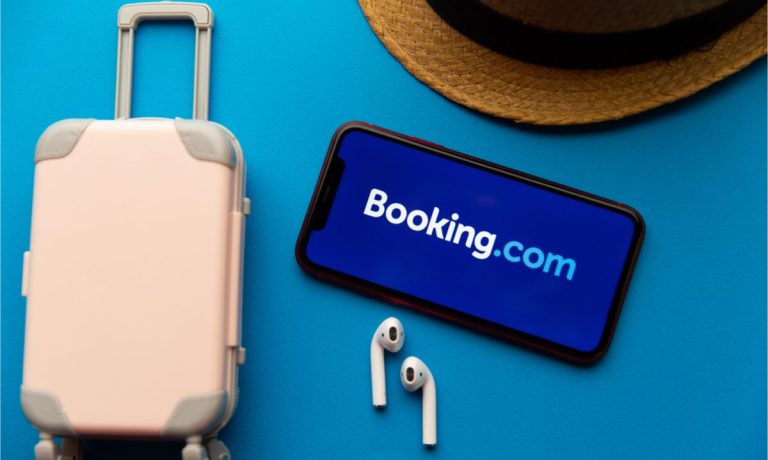Booking.com Bets on Payments, Mobile Tech After Strong Q2 Showing

It’s still wheels up for Booking.com despite economic headwinds in its second quarter that slowed the takeoff to full recovery while showing solid pent-up travel demand being unleashed.
The online travel agency (OTA) said its total second-quarter revenue was $4.3 billion, an increase of 99% from the prior year quarter, marking the first quarter since the pandemic began to surpass the comparable 2019 period with 246 million room nights booked, representing a 16% increase over Q2 2019 bookings.
During an earnings call with analysts on Wednesday (Aug. 3), it was clear that Booking.com — whose portfolio includes KAYAK, OpenTable and Priceline — means to focus on direct business through its Connected Trip and internal payments initiatives, though skies remain cloudy.
In his remarks, CEO Glenn Fogel said, “We recognize that there is uncertainty around the macroeconomic environment and questions about the strength of consumer demand through the end of this year and into next year. And while it is extremely difficult to accurately predict the near-term economic environment,” Fogle said he’s encouraged by current trends.
Related: Booking Holdings Eyes Airbnb, Expedia’s VRBO in Push to Offer Alternative Accommodations
Looking at moves designed to take the largest OTA to the next level in its post-pandemic recovery, Fogel and Chief Financial Officer David Goulden talked up the company’s Connected Trip product and payments platform as strong areas in a difficult economy.
Fogel noted 38% of gross bookings were processed through its payment platform in the second quarter, the highest since launching its platform payments capability.
“We continue to increase adoption of payments by our property partners with over 60% of our total Q2 gross bookings coming from properties that have adopted payments,” Fogel said — meaning roughly two-thirds of bookings at payment-enabled properties are being processed by Booking.com itself.
The company expects to nearly break even on the payments platform this year and start seeing positive returns in 2023. Goulden noted Booking.com is exploring additional payments capabilities, including foreign exchange options for customers paying with dual currencies.
Fogel also said the company launched “an enhanced payment solution for professional property managers in the U.S., and it made progress in increasing adoption by our partners.”
Calling the Connected Trip and payments efforts “interrelated,” Fogel said pre-pandemic, the platform was capturing roughly 25% of total travel spend on average. He added, “We believe by addressing our customer’s critical needs of value, choice and convenience through our Connected Trip vision, we will deliver an improved experience and increase the likelihood that our customers come back to us again on a direct basis.”
See also: Travel in Latin America Is Recovering, Going Digital
Noting that Q2 2022 saw the highest second-quarter level ever in direct bookings across its platforms, Fogel said, “We aim to build on increasing our direct mix through several initiatives, including by continuing to enhance the benefits of our Genius loyalty program, further building out our Connected Trip vision to increase engagement with our customers, and driving more of our customers to download and utilize the mobile app.”
More than 40% of all room nights booked last year were reserved using the Booking.com app, he said, adding that “the app is a critical platform as it allows us more opportunities to engage directly with travelers and ultimately, we see it as the center of our Connected Trip vision.”
The company’s Connected Trip initiative uses data, artificial intelligence (AI) and machine learning to bring all aspects of booking a trip directly to its platform, “enabling our customers to do more without having to go to multiple sites or service providers,” per a website statement.